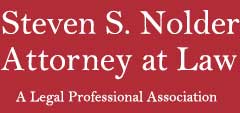Trial Representation
Once our client’s case is indicted by the federal grand jury, it will be scheduled for arraignment. At this proceeding, our client will either enter a plea of not guilty or guilty. Before a guilty plea is entered, our firm has engaged in some form of informal discovery with the Assistant United States Attorney prosecuting the case, we have disclosed this information to our client, and plea negotiations have been undertaken at the request of our client. Each client’s decision is unique, but there is a common methodology and logic that applies in his decision to plead guilty. The client, in consultation with our firm, must objectively consider the evidence in the case, understand the facts the government must prove in order to secure a conviction and conclude that there is a substantial likelihood that he would be convicted by a jury of their peers. After arriving at this conclusion, the client must also believe that the proposed plea agreement will likely lead to a lesser sentence than if he were to go to trial and be convicted by a jury. The overwhelming majority of criminal cases in federal court settle with the defendant entering a guilty plea.
The other plea that can be entered at the arraignment is a not guilty plea. Once this plea is entered, the presiding judge will schedule the date by which discovery must be completed, when pretrial motions must be filed, and the trial date. An important part of the representation that our firm provides is to assist our client in understanding the discovery and objectively discussing how the discovery applies to his case. If after carefully discussing his case with our firm, the client believes that the government cannot convict him of the crime with which he is charged or that the proposed plea agreement does not provide him with an incentive to enter a guilty plea, then he will try his case to a jury. Our firm is skilled at crafting and litigating issues in pretrial motions so that our clients have every possible chance of success at trial. Examples of pretrial motions that are filed include motions to suppress physical evidence and confessions, motions for a bill of particulars, motions in limine, and motions seeking severance. Finally, our firm believes in formulating sound realistic trial strategies after considering the offense(s) charged, the discovery, evidence that we plan to adduce at trial, and the facts beyond change which we anticipate the government will introduce.



